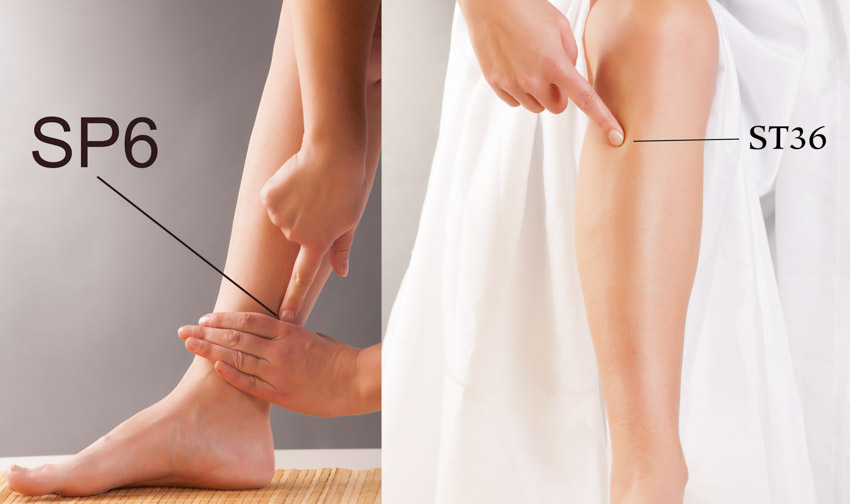
Acupuncture restores brain activity and benefits chronic users of MDMA (3,4-methylenedioxymethamphetamine), a drug often referred to as ecstasy or molly. Using single-photon emission computed tomography (SPECT), Peking University researchers compared a healthy control group with a chronic MDMA user group. The research documents that acupuncture significantly improves cerebral perfusion and brain functional activity after brain damage due to chronic MDMA use. [1]
Cerebral blood flow, functional activity, and the dopamine system were examined using single-photon emission computed tomography (SPECT). Based on the results, researchers (Zheng et al.) conclude that acupuncture improves conditions wherein there is decreased cerebral perfusion and brain functional activity in the frontal, temporal, and occipital lobes in MDMA users. The results of the investigation show that electroacupuncture beneficially regulates regional cerebral blood flow and improves cerebral cell function in MDMA users. In addition, the researchers find that acupuncture restores symmetry in bilateral anterior insular cortex-basal ganglia-temporal regions related to cerebral perfusion and brain functional activity. [2]
Drug Pathology
The researchers detected pathologies present in the chronic drug users. In total, 94.6% of MDMA users had abnormal changes in insular cortex-basal ganglia-temporal regional cerebral blood flow and cerebral cellular function. The anterior insular cortex-basal ganglia-temporal region is connected to brain reward circuitry, which has unique roles in producing feelings of pleasure and euphoria. [3] Also, MDMA users had decreases in regional cerebral cellular function and blood flow. The researchers conclude, “while producing euphoria, hallucinations, libido and the feelings of pleasure, MDMA abuse impairs blood perfusion and brain functional activity in related brain areas.” Outside research (Chang et al.) confirms that chronic MDMA use deleteriously affects cerebral blood perfusion. [4]
SPECT dopamine transporter images demonstrate abnormalities for MDMA chronic users. The researchers note that both sides of the corpus striatum (an area of the basal ganglia) were significantly smaller and were morphologically abnormal compared with non-users. In addition, the width and length of the corpus striatum had pathologically changed and there was damage in the corpus striatum/whole brain ratio. Also, the researchers detected increased permeability of the blood-brain barrier in chronic users. Overall, the researchers note that MDMA chronic use results in universal damage to the brain.
Visual Analyses
Compared with the healthy control group, MDMA users showed a total of 64 localized areas with decreased cerebral perfusion and brain functional activity before acupuncture intervention. Lesions were distributed in the following six locations: 15 at the left frontal lobe, 11 at the right frontal lobe, 11 at the left temporal lobe, 7 at the right temporal lobe, 10 at the left occipital lobe, and 10 at the right occipital lobe. The frontal lobes had the highest number of lesions (26 places), accounting for 32.5% of the total. In addition, 16 of 17 patients (94.1%) showed abnormal changes in cerebral perfusion and brain functional activity in the anterior insular cortex-basal ganglia-temporal region (7 cases on the left side of the brain, 9 cases on the right).
During acupuncture, perfusion and brain functional activity increased in most of the aforementioned 64 lesions as well as other areas at the frontal lobe, parietal lobe, occipital lobe, contralateral thalamus, and bilateral cerebellum. In addition, cerebral perfusion and brain functional activity became symmetrical in bilateral anterior insular cortex-basal ganglia-temporal regions; cerebral perfusion and brain functional activity were successfully regulated toward healthy activity. Interestingly, the blood flow functional changing rate (BFCR) was increased in 68.8 % of the participants.
Design
Researchers (Zheng et al.) used the following study design. A total of 37 subjects were evaluated in this study. They were divided into a healthy control group (n=20) and a chronic drug user group (n=17). All patients were selected from the Compulsory Drug Rehabilitation Center of Shenzhen Public Security Bureau. They had an MDMA-taking history of more than 6 months, with an average frequency of 1 to 2 times weekly. MDMA intake was stopped two months prior to the study. Both groups received two SPECT scans, once before acupuncture treatment and once after acupuncture treatment.
The statistical breakdown for each randomized group was as follows. The healthy control group was comprised of 13 males and 7 females. The average age in the healthy control group was 36 (±7) years. The MDMA user group was comprised of 5 males and 12 females. The average age in the MDMA user group was 24 (±6) years. All subjects were right-handed, with no history of neurological diseases. Physical examination, general and neurological examination, EEG examination, and CT examination showed no disqualifying abnormalities for both groups.
Acupuncture Procedure
Both groups received acupuncture treatment at the following acupoints bilaterally:
- LI4 (Hegu)
- LI11 (Quchi)
- ST36 (Zusanli)
- SP6 (Sanyinjiao)
An electrotherapy device (Han’s acupoint nerve stimulator) was used during acupuncture treatments. Electrodes were applied with an alternating 2 and 15 Hz frequency at a 15–20 mA intensity. Electroacupuncture was applied for a total of 30 minutes.
Summary
Based on the results of this study, the researchers conclude that MDMA abuse can have a deleterious impact on cerebral perfusion and brain functional activity. They note that electroacupuncture can reverse the impact by increasing cerebral blood perfusion, activating brain cell vitality and metabolism, and by accelerating repair of damaged cells. The researchers note that electroacupuncture is effective for the treatment of brain damage caused by MDMA abuse. Based on the findings, the research team suggests that further research is needed to evaluate long-term efficacy, confirm existing findings, and to investigate the most effective acupoint prescriptions for the treatment of MDMA induced brain damage.
References:
[1] Zheng JW, Xu GZ, Shi J, et al. Brain Functional Imaging Studies in Drug Abusers [J]. Journal of Peking University (Health Sciences), 2002, 34(5):530-535.
[2] Zheng JW, Xu GZ, Shi J, et al. Brain Functional Imaging Studies in Drug Abusers [J]. Journal of Peking University (Health Sciences), 2002, 34(5):530-535.
[3] drugabuse.gov/publications/drugs-brains-behavior-science-addiction/drugs-brain
[4] Chang L, Grob CS, Ernst T, et al. Effect of Ecstasy [3, 4-methylenedioxy- methamphetamine (MDMA)] on Cerebral Blood Flow: A Co-registered SPECT and MRI Study [J]. Psychiatry Res, 2000, 98(1):15-28.


